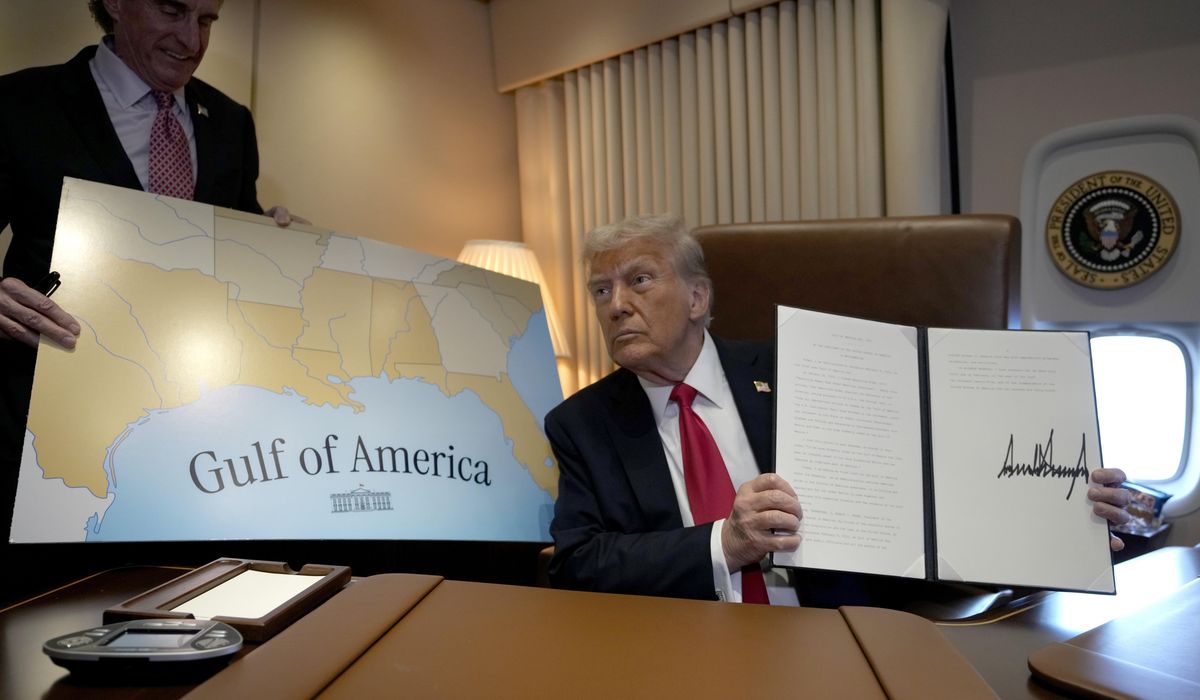


A conflict with potential constitutional ramifications has emerged between President Donald Trump and The Associated Press over the former’s renaming of the Gulf of Mexico.
Mr. Trump is demanding that the AP refer to it as the “Gulf of America,” and has retaliated against the AP’s refusal by blocking their reporters from privileged access to presidential coverage on Air Force One and in the Oval Office.
The AP traditionally holds a permanent position among select reporters covering presidential activities, similar to how some nations hold permanent seats on the U.N. Security Council. The news organization has maintained its stance on using “Gulf of Mexico,” arguing that the name has 400 years of history and must remain recognizable to their audience abroad.
Mr. Trump claims that since the federal designation has been changed to “Gulf of America,” the AP should follow suit. He views this as a matter of reciprocity, stating that if the Associated Press won’t cooperate with his administration, he won’t extend them special privileges. Notably, the AP did accept Mr. Trump’s decision to rename Denali back to Mount McKinley, explaining that the mountain lies entirely within U.S. territory.
The dispute has raised significant First Amendment concerns. Legal experts are divided on the constitutionality of the president’s actions. While presidents have historically had discretion in selecting interview subjects and taking questions, courts have ruled that public officials cannot exclude news outlets from press-accessible events based on ideological differences.
First Amendment lawyer Floyd Abrams supports AP’s position, arguing that barring the news agency solely for a journalistic decision violates constitutional principles. Aaron Terr from the Foundation for Individual Rights and Expression emphasizes that removing AP’s long-standing access due to editorial choices conflicts with First Amendment protections.
The conflict highlights historical tensions between presidents and the press. Similar incidents occurred during the Obama administration, which attempted to exclude Fox News from certain coverage and when Obama’s campaign denied access to The Washington Times and New York Post. In 2018, Trump tried to revoke CNN reporter Jim Acosta’s press credentials, though a federal judge later restored them.
Read more: Associated Press vs. Trump in ultimate showdown for media supremacy
This article is written with the assistance of generative artificial intelligence based solely on Washington Times original reporting and wire services. For more information, please read our AI policy or contact Ann Wog, Managing Editor for Digital, at awog@washingtontimes.com
The Washington Times AI Ethics Newsroom Committee can be reached at aispotlight@washingtontimes.com.
